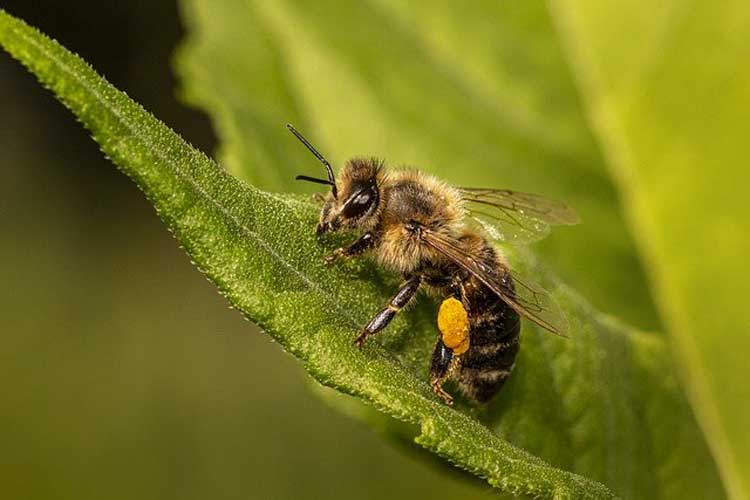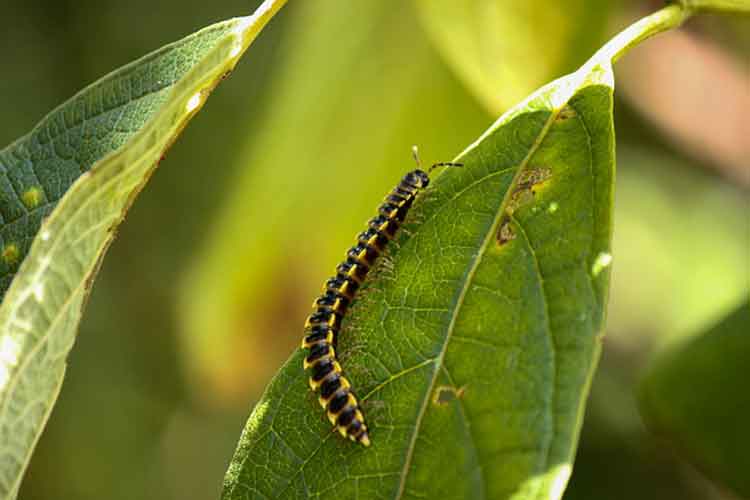Table of Contents
Useful Insects | Insects That Are Beneficial To Your Plants
Various insects visit our crops or gardens, some of which hurt the plants, but there are also numerous insects that help the plants and are vital to their survival.
These useful insects aid in the pollination of plants, allowing them to flower at the appropriate time and begin the process of fruit development. Apart from pollination, they also help to keep the plant healthy by consuming the pests that live on it.

Honey Bee
Bees are pollinators for plants, and we’ve all seen them. It eats pollen by sitting on flowers, and pollen grains adhere to their bodies. When it moves on to other plants’ flowers, the pollen grains fall there, and the pollination process begins.
Lady Bug
Aphids, Whitefly, Mites, Fleas, and the Colorado potato beetle are among the pests it eats. A Lady Bug is thought to consume 5000 aphids in her lifespan.
Also Read: How Do You Go About Planting Flowers | Best Flower Planting Tips
Mentis Praying
It eats caterpillars, moths, beetles, and crickets, among other bugs species. Grass, Cosmos, Marigold, and other similar plants are suitable for Praying Mentis.
The Spider
Aphids, caterpillars, grasshoppers, and fruit-flies are among the insects they eat.
Beetle in the Ground
Slugs, caterpillars, Colorado potato beetles, cutworms, and other pests fall into this category. Amaranthus is an excellent host for this.
Midge Aphid
It only attacks Aphids. It can be found in the soya plant (Dill) and flowers with pollen grains and nectar.
Braconid Wasp
Caterpillars, aphids, and hornworms are all food for this bug. The caterpillar is where it deposits its eggs. This works well with soy (dill) and parsley as hosts.
Damsel in Distress
Caterpillars, mites, aphids, potato beetles, cabbage worms, and other insects are among its victims. Fennel, Alfalfa, Mint, and other plants are ideal hosts for it.
Lacewing
Aphids, Whitefly, Leafhoppers, Mealy Bugs, Caterpillars, and other bugs are among the prey. Coriander and Soya (Dill) are excellent hostesses. Mild insects are severely harmed by the larvae of this bug.
Pirate Bug
Aphids, thrips, spider mites, and caterpillars are among its victims.
Soldier Beetles
It hunts grasshopper, aphid, and other insect eggs. Marigold and genia are excellent hosts for this.
Tachinid Fly
It preys on Gypsy moths, Japanese beetles, cutworms, and squash bugs, among other pests. Carrot and Soya Coriander make excellent hosts.

Hover Fly
Hover flies eat aphids, scale insects, caterpillars, and other bugs. Its good host is Soya (Dill) Statice. Its larvae devour insects to keep their stomachs full.
Mealy Bug Killer
The mealy bug is eaten by this insect, which kills it. This grows well in fennel, soy, and sunflower.
Predatory Mites
It is poisonous to spider mites. If they don’t find any prey, they ingest pollen grains, which is great for this.
Ambush Insect
They feed on huge flying and crawling insects.
Bug with a Large Eye
It eats crawling insects and keeps a swath around your plants.
Also Watch: Peepal Tree | Peepal ke Benefits
Brown Recluse Spider
It eats a variety of insects, particularly those of a great size, and prefers to prey on them. Contact with the skin may cause inflammation.
Millipede
They enjoy eating decaying objects and clean up after themselves by devouring rotten trees and plants. In the case that such food is scarce, they devour snails and other small animals.

Centipede
Centipedes or centipedes like to consume rotten things, and they clean up after themselves by devouring decaying trees and plants. In the case that such food is scarce, they devour snails and other small animals.
The presence of these insects is critical for our crops, such as flowers, fruits, and vegetables, as well as gardeners. You should establish an environment that encourages these pests to return to your garden.
Some individuals use chemical insecticides on plants, which harms beneficial insects and causes significant environmental damage. As a result, chemical use in the garden should be avoided; instead, neem oil can be used as an insecticide.